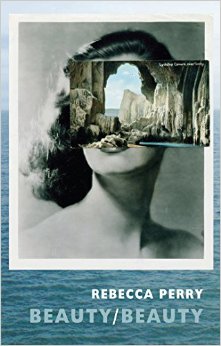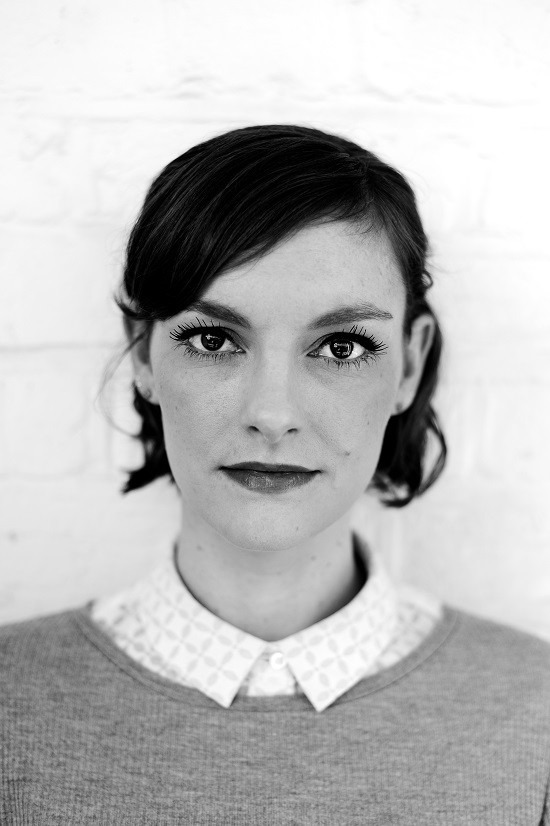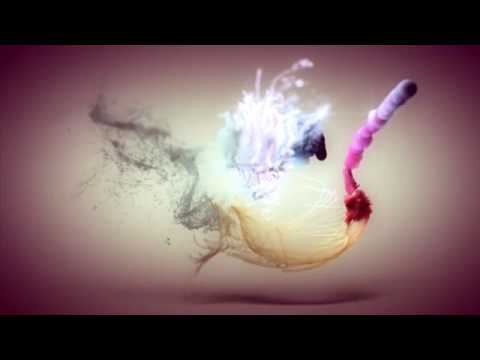Published in January, Rebecca Perry’s debut full-length collection of poetry, Beauty/Beauty, has been given the rare honour of a Poetry Book Society recommendation and has so far been roundly praised by critics for its originality, generosity and openness. One recent review reflected on the book’s overriding mission of empathy with its subjects, as well as its “emotional toughness achieved through deliberate poses of vulnerability.”
I first met Rebecca in 2007, while we were studying together at the University of Manchester. Recently, over the Internet and a number of weeks, we spoke about dogs, sadness, gherkins, Nintendo, her book, and her abiding love of museums.
Who is Rebecca Perry?
Rebecca Perry: Never heard of her.
Please briefly chart your key artistic discoveries in your development as a writer/human.
RP: When I was very young I had a large hardback book of children’s stories (the kind where the little mermaid dies at the end). There were three stories that have stayed with me in the way only something read obsessively when young can, the first of which is the abovementioned The Little Mermaid (which appears in my poem ‘Estrapade’). The Beast with a Thousand Teeth is a story about a terrible beast that eats the townspeople at night, until a smart young baker boy begins making extra cakes and doughnuts every day and taking them to the Beast’s cave, ensuring that he is full up and has no room left for humans. The Beast (who has probably just been lonely and confused all along) gets terrible toothache and appeals to the young boy for help which, of course, the boy gives, leaving the Beast forever indebted and (most importantly) disinclined to eat humans.
It’s a simple morality tale first and foremost, but so much of it – the misunderstood creature, empathy, death, cakes – creeps into my writing. The third story is actually far too complicated to explain but features a talking bull and a young girl turned to stone, about which I’ve been trying to write for around three years now.
In my teens I found Lorca and Tennessee Williams through their plays; the only possession I really ‘prize’ is a first edition Lorca I was given as a gift and he was certainly my first poetry love. I studied theatre of the absurd at university and Pinter and Beckett have stuck with me. Reading Simone de Beauvoir’s The Second Sex when I was 21 was definitely an artistic discovery. Frank O’Hara and Anne Carson have been my greatest loves of recent years. (They feel obvious to say but I can’t help it.) I hate that my ‘influence list’ is mostly male and white, which isn’t at all true of my more recent discoveries, but I suppose that’s a product of what’s taught in schools and universities.
This is not brief – I apologise.
Why do you write? (Please answer with a pre-existing YouTube video of your choice.)
Reading your book made me feel like a bad writer; how do you feel about doing that to people?
RP: If that’s true at all then I think it’s a fine thing to do, though I have to say I find it hard to imagine anyone will feel like that. It would be nicer to think that someone might read it and feel excited or inspired rather than disheartened, but I’ve read plenty of things that have made me feel like a very bad writer – it’s just part of living in a world that has other people in it.
The book’s opening poem, ‘Pow’, is one of my favourites of yours, and introduces one of Beauty/Beauty‘s key themes: female experience. I know you’ve been involved with women’s charities and organisations such as Hollaback: how has your interest in those areas grown/changed/etc.?
RP: Writing ‘Pow’ was sparked when I came across ‘inner man’ in the dictionary one day (def: the soul or mind, the stomach) and, like a fool, skipped ahead to see what the definition for ‘inner woman’ was. Of course there wasn’t one – it just said ‘See: inner man’. It seemed like a perfect little piece of information from which to write a poem that deals a little with perceived ideas of femininity and the displacement of women. It’s amazing how many reviews that consider ‘Pow’ call it ‘a dictionary poem’ or ‘a poem about words’, which of course it is, and totally skip over the significance of which words are being considered.
My interest in the female experience (or, I should more accurately say, my female experience) has grown lots in the last ~4 years, both in terms of who I read, what I think is important and what I choose to write.
Many of the poems in the book wear a loneliness, a kind of frustrated optimism, or perhaps just a sad but ornate resignation; I mean, the poems have a tone which makes the following line in the book particularly stand out:
“at the time of writing the boundless joy / of a pre-walk dog is
suggesting itself in the writer’s chest”
How often do you manage to feel like that?
RP: Well, ‘sad but ornate resignation’ is going to be the title of my second collection now, so thank you.
I feel like that pre-walk dog only rarely. Usually it’s the prospect or the experience of spending time with a person or people I love, or sometimes (but less often) if I’m reading or writing something that excites me. Dogs also make me feel very joyful indeed.
What makes you sad?
RP: Lots. The status and treatment of women (and some people’s absolute denial of that) and how relentlessly you hear about terrible things happening to women and girls around the world, swimming pools that are too deep or dark or cold, my friends being sad, a dog outside the supermarket who thinks its owner will never come back, throwing away food that’s gone bad, old portraits, Ivor Cutler’s voice, factory farming…
What’s the last book that made you feel like a bad writer?
RP: There are lots. Reading Kate Kilalea makes me feel verbose, Sara Peters’ 1996 makes me feel a bit cowardly, Things to Make and Break by May-Lan Tan makes me feel boring, Noelle Kocot makes me feel like I have no imagination.
The most recent poems (though not in a book) that did that were a Poems in Which submission I read yesterday by a Canadian writer called Graeme Bezanson – his poems are so alive and odd and made me feel very stale and prosaic. But it’s good to feel those things! In the wrong mood it can be unhelpful in the short-term but most of the time if I read something wonderful it makes me want to write something new and not be lazy.
What’s the last poem that made you feel like a bad writer?
RP: The extract from Lisa Robertson’s The Men published in issue 5 of tender.
What would you say if I told you I have a note in my iPhone that suggests I think the central image of the book is an avocado?
RP: I would say ‘I’m delighted with that, but why?’ The avocado that features in my book is described as ‘playing dead and prehistoric’. They look so curmudgeonly and reptilian – like they might come to life any moment – I’m very fond of lychees for the same reason (though they look more like dinosaurs).
I have a quite intense dislike of pips (mostly in citrus fruits) but the avocado stone is a thing of wonder – it’s just perfect – it’s the most surprising of all stones.
One of the poems in the collection features 24 tonnes of noodles spilt on a motorway, which I liked, because it’s a good thing to imagine. In that poem, you outline things that happened during the year you were born. Please spend two minutes finding your favourite things that happened in the year I was born and write them below.
RP: I just found out something perfect: 1983 was the first official year of the internet. It’s like they knew you’d arrived. The year you were born also saw the first flight of the space shuttle Challenger, which then blew up in the year I was born. Red rain fell in the UK, caused by sand from the Sahara Desert. Nintendo’s Family Computer (the Famicom) went on sale in Japan ON THE DAY YOU WERE BORN – you love Nintendo and Japan – it’s too good to be true!
Please describe your average day.
RP: I’ll do a weekday because statistically there are more of those. I wake up at 7.35am and leave the house for work exactly 35 minutes later. I spend my day at work (as an editor) either being incredibly busy or having very little to do. If I’m quiet I will normally be able to write, but that hasn’t been the case lately (being able to write). I try always to leave the office and walk.
After work 40% of the days I will then go swimming, 40% I will do something nice like see friends or go to a reading, and 20% I will go home right away and hang with my bf. Then I will be on the internet/writing/watching TV for the evening, then I will read before I sleep. Sometimes things are way more exciting than that but you said average, so, welcome to the party.
Please describe your ideal day.
RP: My fantasy day would need to have more than 24 hours in it because I would like to sleep in really late but also achieve a lot, but ideal I suppose needs to remain within the realms of possibility, which is why I’m not saying ‘end all wars, irrigate Africa’ etc.…
I would wake up at 9am, incredibly well-rested, and it would be bright and sunny. I’d eat a delicious breakfast (feat. hash browns) and have a bath. I’d go to the park, alone, and read and write for a while. Probably because it’s sunny at the park there would be lots of great dogs around, and most likely one of those dogs (some sort of scruffy dachshund) would come and hang with me for a while. Then I’d go somewhere to swim. After that I’d go to a gallery or museum or Hampton Court (by boat) with one or two people who were also enthusiastic about doing something like that. Then I’d see some friends and we’d sit outside a pub a drink together, then go to someone’s house to eat and stay up very late nibbling olives and gherkins and drinking champagne.
You’ve just Facebook messaged me that you’re worried the questions aren’t serious enough. So:
In the piece you wrote for Faber, ‘Why I write’, you say – on the titular point – “I’ve rarely given it much more consideration than why it is I like potato so much.”
Why do you like potato so much?
RP: I guess I must have had positive experiences with potato from an early age. But really, for a nondescript lump of whiteish-yellow, it can achieve so much.
Why do you write? (Please answer with an image of your choice.)

I remember when I read a very early version of the collection, you were looking for titles and I suggested Sometimes, in the sun, which now (coincidentally) appears on the very last page of the book.
What – if any – other titles did the book nearly have?
RP: It had so many! I think you actually suggested ‘like this, in the snow’ (which is in the very last stanza of the book) too – we both agreed the title should have some punctuation in it anyway.
At various points along the way I thought about: Dear Stegosaurus, Pow, butter and eggs… it was even called Goodbye Tinseltown on my contract from Bloodaxe. Settling on a title was probably the least enjoyable part of putting the book together for me.
Who is Rebecca Perry?
RP: A charming and radical – yet much-admired – feminist, resident in the Tudor court at the special request of the Queen/King, by some great accident born in 1986 into the body of an unremarkable female from Croydon.
What’s so good about museums?
RP: They make me feel funny for all sorts of reasons, mostly related to the idea of shared human experience stretching back over a history so long we can’t even fathom.
That sounds very basic – it’s a more magical feeling than that. If I see a Roman coin or something I feel very overwhelmed by the fact that a now-dead person’s very much alive thumb and finger once touched it, and passed that to another person, then living and also now dead, and bought bread, very much then freshly baked and now… what? In the ground somewhere? Floating in the sea? I also find it helpful to be in an environment that forces you to confront the fact that everyone who has ever lived has also died and there’s no escaping it. Do you remember we were in the British Museum that time and there was a kid looking at a mummy through the glass and crying really loudly? I was like, ‘You and me both, mate.’
I’m a very nostalgic person – where I think of nostalgia as just being jealous of the past – both in terms of my own life, and life preceding my time on earth. I want to see what people have left behind, what remains of us, how people have endeavoured and what they’ve created. If I could start over again I’d be an archaeologist.
What is your some good advice that is exactly three words long?
RP: Winter is coming.
What is your some good advice that is exactly ten words long?
RP: ‘The master’s tools will never dismantle the master’s house’ – Lorde
(I’m counting Audre Lorde’s name in the quote as the tenth word. Bite me.)
Who is Rebecca Perry?
RP: Just a girl dreaming about pasta.
Do you have any questions for me?
RP: I have so many.

Beauty/Beauty is out now, published by BloodAxe



